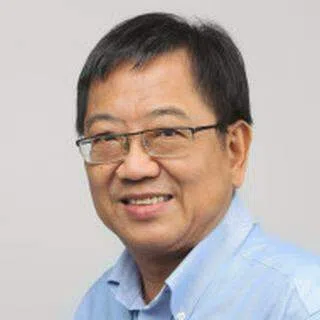Why the world now looks to Singapore’s stability
Former Lianhe Zaobao editor Lim Jim Koon reflects on how former critics of Singapore — on Asian values, governance, and freedom — now see a nation that champions harmony, long-term vision, and stable leadership amid global chaos. How should we shape our future in this uncertain world?
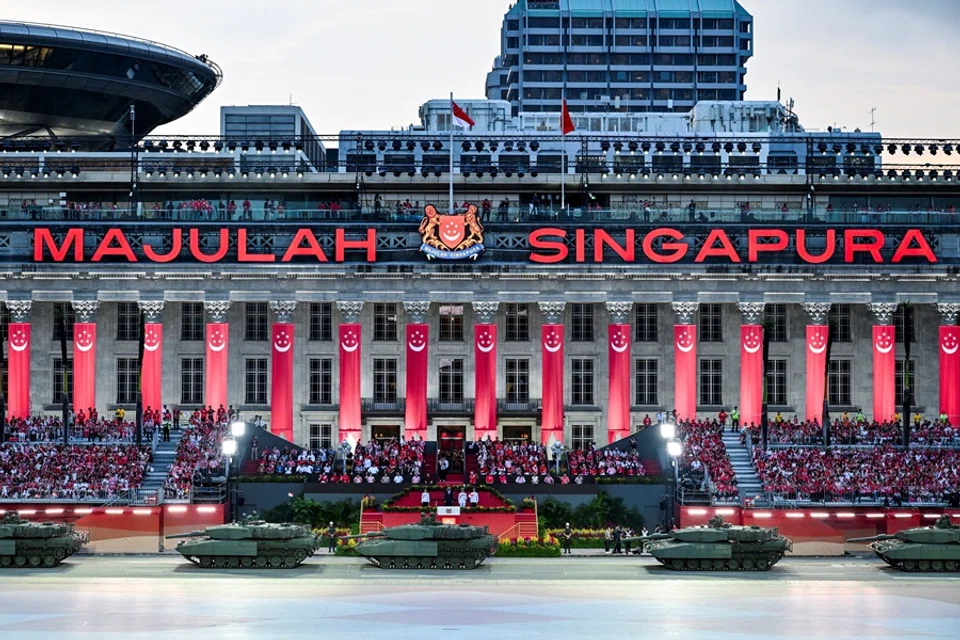
Thanks to US President Donald Trump’s outlandish conduct on matters of democracy, human rights and freedom of speech, the once-bright “beacon of democracy” has lost much of its shine. Western media have found a new target for attack, and can no longer speak from a position of moral authority when criticising so-called “undemocratic” societies in Asia.
For us, it has been noticeably quieter. Criticism of Singapore’s political system and human rights record from the Western press has grown scarce. Even Asia’s own “free” media — once eager to echo Western narratives — have begun to shift their tone.
In praise of Singapore
On the eve of Singapore’s 60th birthday, Thailand’s Bangkok Post published an article on 8 August titled “Singapore turns 60 with much to show”, lauding our achievements.
The article said: “No country turns 60 like Singapore. In a neighbourhood of political dynasties and varying shades of autocracies and flawed democracies, the little island state of six million got lucky with its strongman rule. When he died in 2015, Singapore’s patriarchal founder Lee Kuan Yew left a great country behind. This weekend, Singaporeans can take stock of what’s gone by and rightly celebrate its milestone with much to show for.
“To be sure, Singapore’s success is time-tested. In 1965, when it was virtually kicked out of the Federation of Malaya — Malaysia today — the then self-governing island of predominantly overseas Chinese faced dire conditions and dim prospects. The ruling People’s Action Party and its leadership under Lee had to build up their poor little island, less than half the size of Bangkok’s land area, into a prosperous nation from ground zero.”
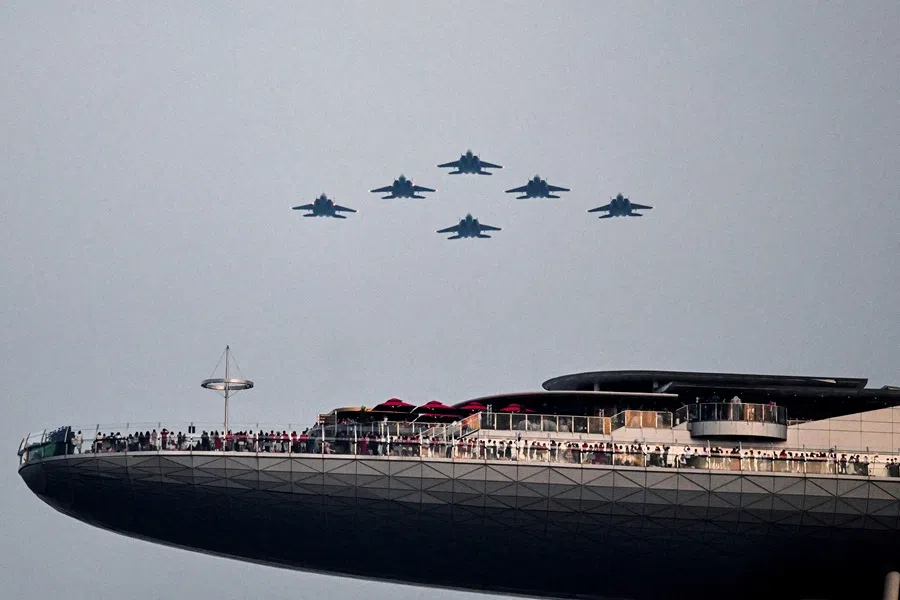
Articles in praise of Singapore are not uncommon, but what is interesting about this particular article is that it is written by a well-known critic of Singapore, Professor Thitinan Pongsudhirak from Chulalongkorn University’s Faculty of Political Science. After several complimentary paragraphs, he declared: “Lest readers think this is an article driven by obsequity and ingratiation, I was a critic of Singapore for many years.”
Singapore can boast not just a world-class economy, a merit-driven society with the rule of law, and Oxbridge-quality universities, but also a new generation of leaders, now headed by Lawrence Wong, an outsider not from the Lee family but an offspring of the system Lee built... — Professor Thitinan Pongsudhirak, Chulalongkorn University
From criticism to support
What had he criticised Singapore for? According to him, over 30 years ago, he was uncomfortable with Singapore’s promotion of “Asian values”, and questioned why Singaporeans considered themselves spokespersons for these values.
At the time, Thitinan Pongsudhirak believed that Singapore’s attribution of East Asia’s remarkable economic performance primarily to values such as “deference and respect for authority, communitarianism over individualism, familial piety and social harmony, discipline, hard work, and so forth” was a “self-serving rationalisation because Singapore was a single-party-dominant state”.
His dissatisfaction with Singapore peaked in January 2006, when Thailand’s Prime Minister Thaksin Shinawatra sold his telecommunications group, Shin Corp, to Singapore’s sovereign wealth fund Temasek for US$1.9 billion. He considered this deal scandalous “in view of the unfolding Thai political crisis centring on Mr Thaksin’s corruption and conflicts of interest” and published an article titled “Is Temasek complicit in scandal?” in the Bangkok Post, followed by another article, “Singapore’s culpability”, further denouncing the deal.
However, in this recent article, his attitude has taken a 180-degree shift:
“But the past 20 years have changed my perspective. Singapore has gone up and up, while Thailand has gone down and down. Singapore can boast not just a world-class economy, a merit-driven society with the rule of law, and Oxbridge-quality universities, but also a new generation of leaders, now headed by Lawrence Wong, an outsider not from the Lee family but an offspring of the system Lee built… Moreover, the statesman-like level and stature of Singapore’s leaders, their knowledge grasp, and ability to articulate and engage on principle and substance are second to none worldwide. Singapore continues to deliver for its people and to provide them with a future worth working for. Although Singaporeans tend to complain about this and that, they know deep down that they have a good country.”
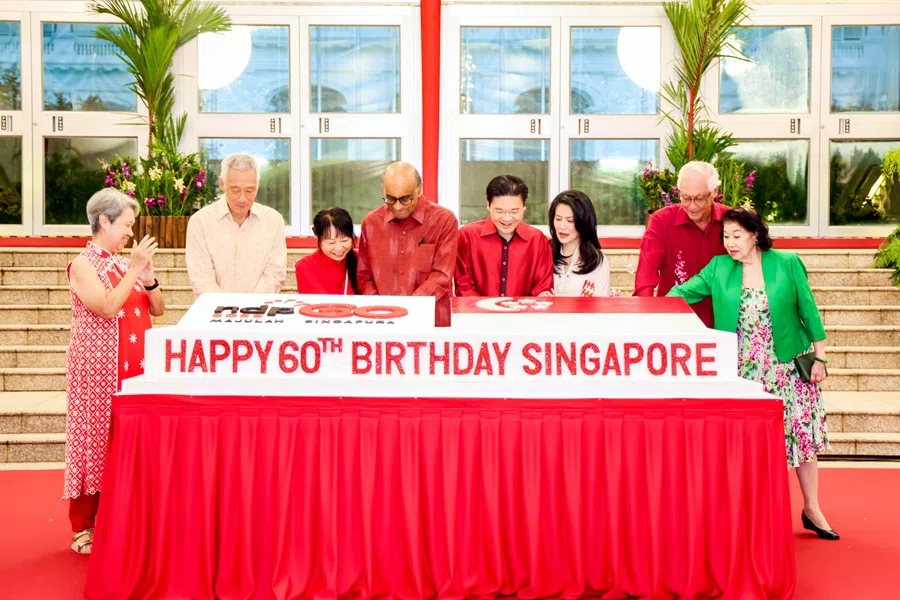
Such high praise is no ordinary compliment, especially coming from a foreign academic who was once highly critical of Singapore. Given his own observation that Singapore has “gone up and up” while his country has “gone down and down”, it’s understandable that Singapore’s path might appear especially remarkable to him.
Looking back, there were indeed many who criticised Asian values at the time, and Thitinan was not an isolated example. They felt that the so-called “Asian values” were merely an excuse for “authoritarianism” or for being “undemocratic”.
A question of values
In fact, back then, Lee Kuan Yew had referenced the opinions of several Confucian scholars to summarise some common values of the Four Asian Tigers, with the aim of constructing a theoretical framework explaining their rapid economic development and proposing a referential governance model.
“Asian values” were saddled with negative labels, seen as an excuse to maintain authoritarian politics, and Singapore subsequently rarely raised them again.
Unfortunately, “Asian values” were stigmatised by Malaysia’s former Prime Minister Mahathir. He also vigorously promoted Asian values, but unlike Lee, he presented them in his typical emotional and confrontational style, loudly proclaiming them as a political slogan, and positioned himself as an anti-Western vanguard; especially during the 1997-98 period when Malaysia fell into a severe financial crisis due to a series of policy and investment failures which threatened his regime. He even waved the banner of “opposing economic colonialism”.
As a result, “Asian values” were saddled with negative labels, seen as an excuse to maintain authoritarian politics, and Singapore subsequently rarely raised them again.
In fact, we have not abandoned these values but have instead expressed them in more neutral terms such as “social compact” and “communitarianism”. Prime Minister Lawrence Wong emphasised during this year’s National Day Rally that “we must be a ‘We-First’ society”, reiterating the value of putting collective interests over self-interest.
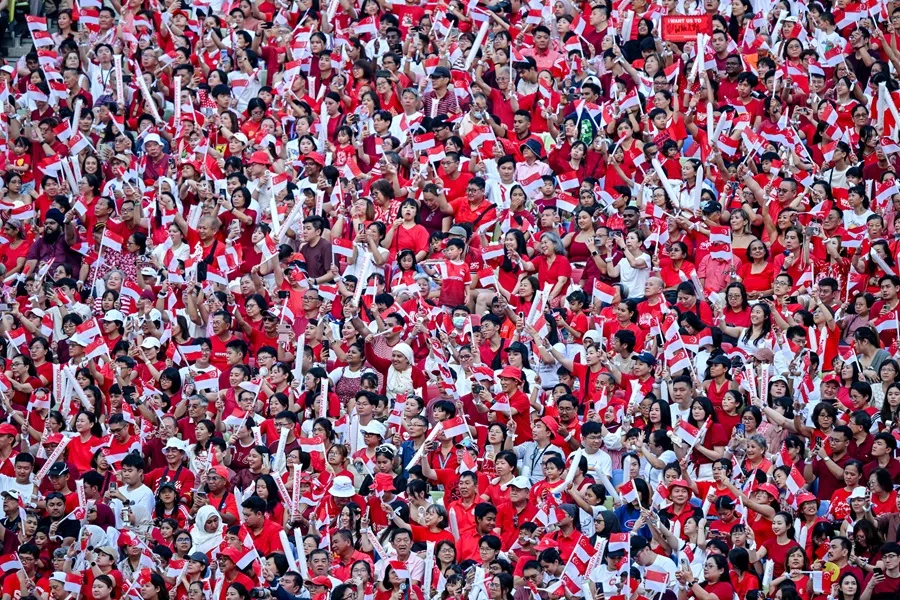
In any case, Thitinan’s “birthday tribute” article from a neighbouring observer provides us with an opportunity for reflection, allowing us to understand what we have done right as well as what aspects or commitments can withstand the test of time.
Populism at work?
Another “observer’s” view of our country also has a similar effect.
Financial Times associate editor Janan Ganesh on 19 April published a commentary titled “What abundance can’t achieve”. Its subtitle “Growth is worthwhile in itself — but it’s not a cure for populism” encapsulates the core argument of the piece.
The commentary begins like this: “The Marina Bay in Singapore was a less desirable address half a century ago. I don’t mean that it had fewer residential towers with drone-like views of the Grand Prix circuit. I mean the land itself was water: yet to be hard-won from the Straits. Like the growth of Changi, the carpeted and plant-filled resort that it pleases some to call an airport, this reclamation scheme has helped the island accommodate 6 million, up from 2.5 million when I was there as an infant.”
“Realistically, no raucous western democracy can build things like Marina Bay with such eerie smoothness. But a world in which retailers don’t have to keep humdrum toiletries behind lock and key shouldn’t be so exotic a dream.” — Janan Ganesh, Associate Editor, Financial Times
He cites Singapore’s development of Marina Bay in contrast to the “negative example” of San Francisco — a cautionary tale of how red tape, bureaucratic inertia, judicial review and raw Nimbyism can stall development projects. The result: depopulation, homelessness and growing voter discontent.
He sees this as a symptom of populism, noting that populism is rampant across Western society, whether they are experiencing rapid growth or not. From the US to eastern Germany; from Ireland to France and Australia, he finds no clear correlation between material prosperity and political stability. He thinks that the rise of populism stems from the West’s long-standing neglect of the public’s one desire: order.
He astutely pointed out: “Realistically, no raucous western democracy can build things like Marina Bay with such eerie smoothness. But a world in which retailers don’t have to keep humdrum toiletries behind lock and key shouldn’t be so exotic a dream.”
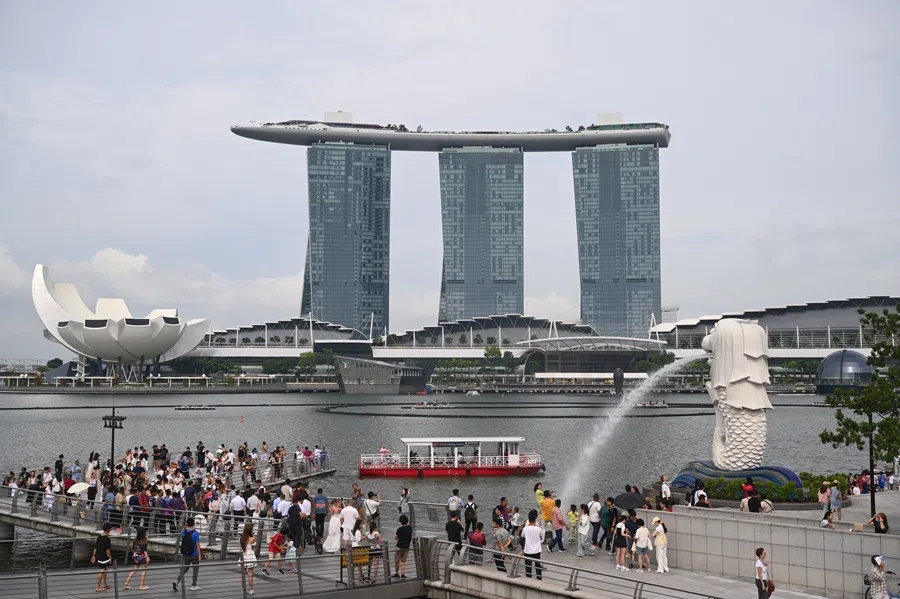
He explained that there is no link between abundance and voter happiness; in fact, it could even fuel populism by raising public expectations while also inducing boredom. He criticises the elite for relying too heavily on growth-focused solutions, overlooking the political and social roots of voter discontent, especially the deep desire for order. He argued that there is a lack of order, whether it is the order of national borders, or the order of being able to walk unaccosted through cities. He believes modern liberalism often neglects these concerns, creating fertile ground for populism to take hold.
Ganesh stresses that abundance alone is not enough — what is needed is a form of liberalism that not only builds but also protects, and even dares to condemn.
Citing Singapore’s Marina Bay as an example, he highlights the crucial role of order in driving development and resisting populism, suggesting it offers valuable lessons for the West. This reminded me of Chinese leader Deng Xiaoping’s 1992 southern tour, during which he praised Singapore for maintaining social order alongside rapid economic growth. Our emphasis and commitment to order are clearly justified.
Ganesh’s commentary provides food for thought. Although his argument that economic prosperity does not necessarily boost voter satisfaction and may even fuel populism is aimed at the West, it serves as a timely warning for us as well.
A shift in views
The third “observer” who commented on us over the National Day period was well-known Taiwanese writer Lung Ying-tai, who previously served as minister of culture under the former Ma Ying-jeou’s administration — a familiar face to many.
Lung is perhaps best remembered by Singaporeans for her 1994 article in Taiwan’s China Times titled “Thank God I Am Not Singaporean”, in which she criticised us, saying: “Even if you have high economic growth, good public safety and an efficient government — I’m sorry. I still wouldn’t give up my tiny bit of personal freedom and dignity.” When Lianhe Zaobao reprinted the piece, it sparked strong backlash, with readers writing in to fiercely criticise her.
Today, she [Taiwanese writer Lung Ying-tai] sees a “softer” Singapore, a city where different races live in harmony and coexist with nature: “You can tell this country puts real heart into what it does.”
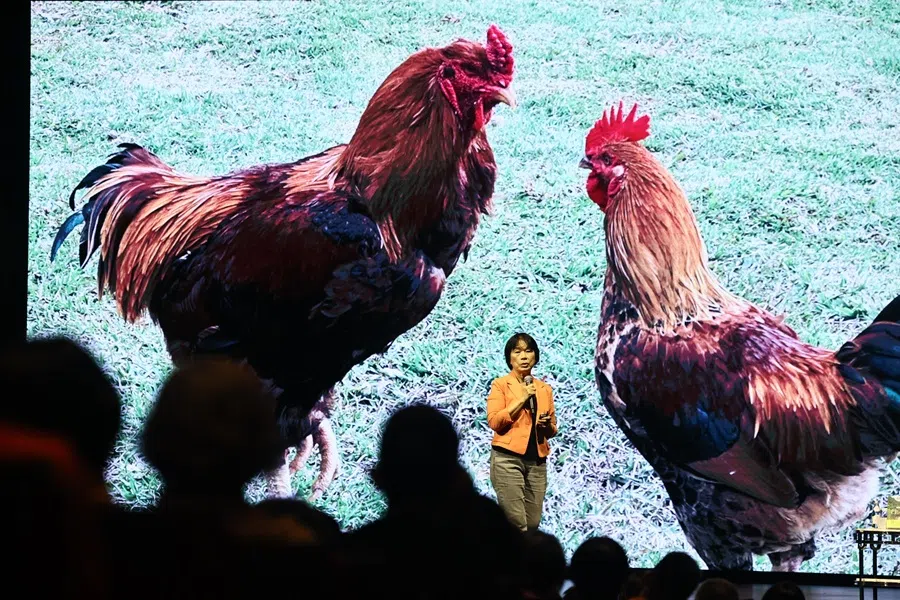
Some Singaporeans still hold a grudge over it, unaware that her views on Singapore have shifted significantly in recent years.
In my column published in Lianhe Zaobao on 29 July 2023, I highlighted Lung’s positive remarks about Singapore: “As the well-known Taiwanese writer Lung Ying-tai, who has visited Singapore many times, said during a recent dinner conversation, Singaporeans seem to possess a strong sense of awareness of any eventualities — always concerned about the country’s future and planning far ahead. Clear examples include water reclamation, long-term water supply planning, and pre-emptive measures against rising sea levels… This city-state starts from this awareness of any eventualities, yet responds with accelerated technological innovation. I recently learned how Singapore envisions a catastrophic future — severe water shortages, a global food crisis, and so on — and uses cutting-edge research to prepare for such scenarios.”
In June this year, Lung visited Singapore for the City Reading@SG festival, and gave interviews across various Lianhe Zaobao platforms, expressing clear admiration for the country.
To summarise her main points: in a world increasingly leaning right, marked by social fragmentation and rising exclusionary sentiments, Singapore’s careful efforts to maintain racial harmony are “truly no small feat”. She praised the country’s vigilance and governance — from food security and social cohesion to environmental sustainability. Today, she sees a “softer” Singapore, a city where different races live in harmony and coexist with nature: “You can tell this country puts real heart into what it does.”
She also highlighted Singapore’s urban planning efforts to maintain ecological balance. For example, the Eco-Link@BKE (Bukit Timah Expressway), which reconnects two previously separated nature reserves, allowing animals, insects, and birds to move freely between the forests. More than 3,000 native trees and shrubs have been planted along the link, expanding habitats and genetic pools. She lauded this as “a true practice of multi-species justice”.
Yet despite their different angles, they all arrive at the same conclusion — the very core of the virtuous cycle between political stability and good governance.

Like Pongsudhirak, Lung has undergone a fundamental shift in her view of Singapore — from sharp criticism some 30 years ago to generous, heartfelt praise today.
Together with Ganesh, they each examine Singapore from different perspectives — from the calibre of political leadership to social order; and from racial harmony and ecological balance to long-term, pre-emptive planning. Yet despite their different angles, they all arrive at the same conclusion — the very core of the virtuous cycle between political stability and good governance.
As the saying goes, “The onlooker sees more of the game.” Let’s accept these birthday gifts with grace. Where there are faults, let’s correct them; where there are none, let’s give ourselves a pat on the back. May we all strive together.
This article was first published in Lianhe Zaobao as “国庆感怀:旁观者清,无过则勉”.
